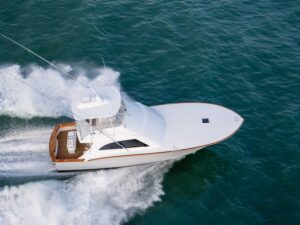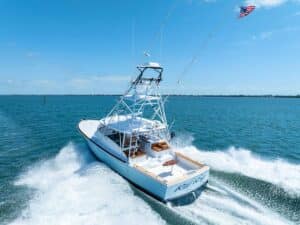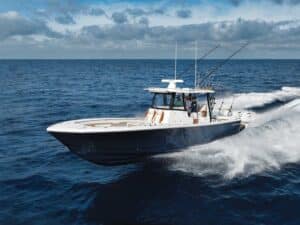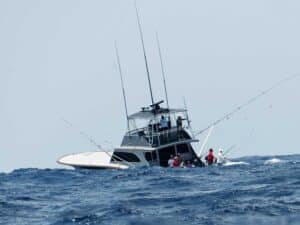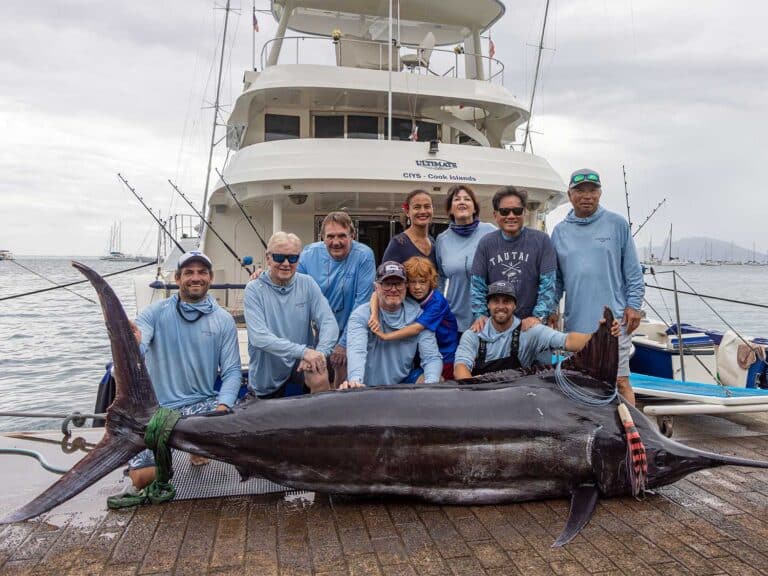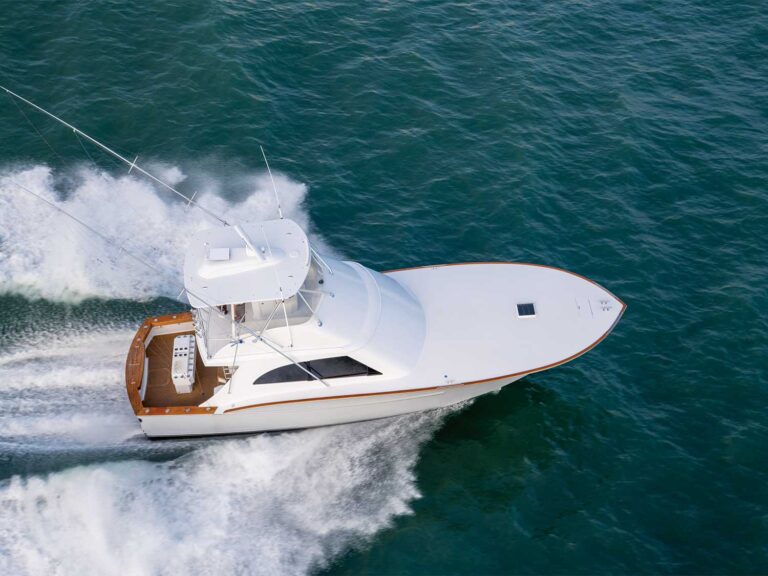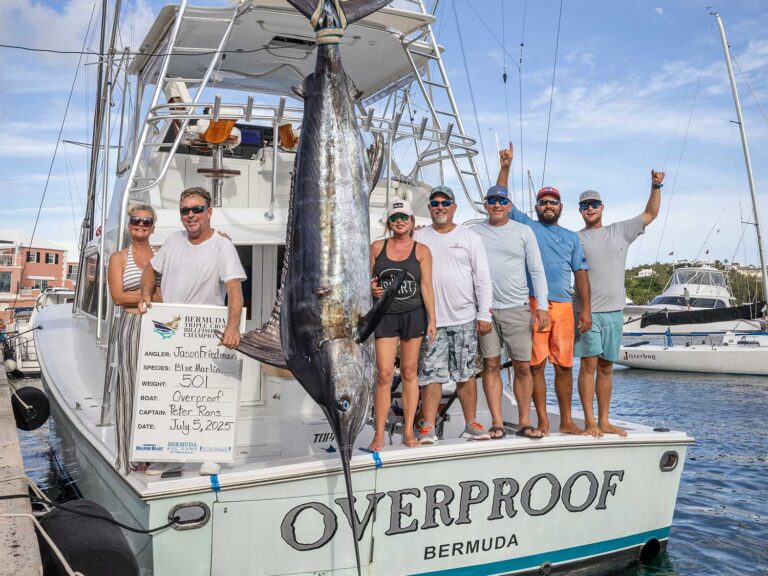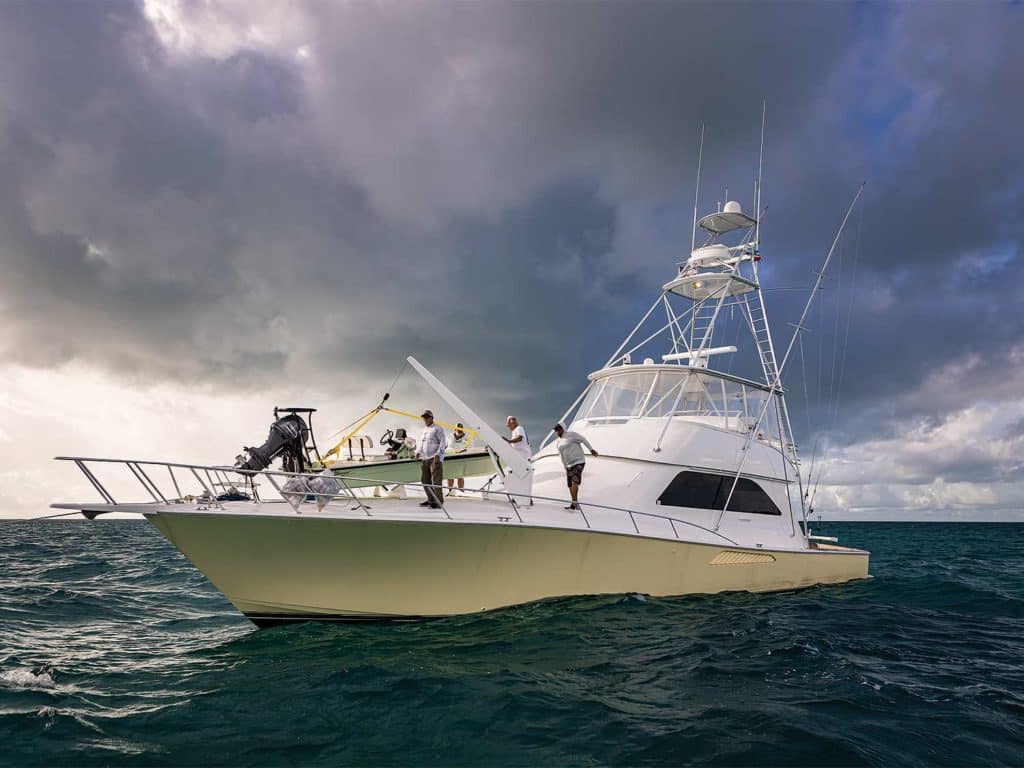
A tender is essentially a boat used to support a larger vessel, whether it’s for entertainment or some form of service. As sport-fishers continue to grow in size and capabilities, tenders have become increasingly more commonplace, and can include anything from a micro flats skiff to personal watercraft and even large center-consoles. Tenders are often included in the purchase of a larger vessel, but from the parties’ standpoint, they are often an afterthought in the overall transaction.
Maintain Your Documentation
It is crucial for owners and captains to maintain the proper documentation on each of their tenders. Failure to have the proper documentation can cause an extension of closing dates and even cause for a transaction to be terminated. I have personally witnessed a multimillion-dollar deal fall apart over a tender worth less than $25,000.
Watch: Learn to rig a swimming mackerel.
That scenario might seem silly to the readers, and perhaps it is a bit over the top, but often a buyer has immediate plans to use a sport-fisher or yacht that he purchases. Buying new tenders can be a process, from finding the right models to arranging delivery or perhaps ensuring that they fit properly on the chocks already on the mothership. Buyers can be finicky, and the value of time is often almost as important as the amount of money changing hands.
Always Register Your Tenders
Boaters might often see a “t/t” on the side of the hull in front of a boat’s name. Most individuals who have spent any time on the water know the “t/t” stands for “tender to” the larger vessel it supports. It has been traditionally thought that a tender does not need to be independently registered so long as it stays in the line of sight of its mothership, and that is indeed the case in some foreign jurisdictions. Hence, the tender can be recorded or registered under the same registration as the big boat.
If in the United States, each tender should be separately registered regardless of how it is used. The US Coast Guard and local marine patrol will want to see a registration number and decal on your hull if you are pulled over for a basic safety check or any other reason. And even if the tender does stay in sight of the mothership at all times and an owner doesn’t run into any issues on the water, there will almost certainly be problems at the time of sale if the tender has never been registered. Tax collectors and other registration offices, especially in Florida, have become increasingly more stringent with respect to tender documentation.
No Registration, No Sale
Tax-collection offices in Florida typically will not allow a buyer to register a vessel in the state if purchased from a private party who previously failed to register it. The usual scenario occurs when an owner purchases a tender and receives an original Manufacturer’s Statement of Origin from the builder but never registers it with a state authority because it travels with the mothership. The tax collector’s office will likely require the owner to register the vessel before a subsequent buyer can take title. This is especially problematic because a buyer typically does not find out he cannot properly transfer ownership until after he has paid for the boat.
Read Next: Favorite Bahamas destination? Four well-traveled captains tell all.
For example, one of our clients purchased a 26-foot center-console a few years ago to travel with his sport-fisher, which he sold earlier this year. He then sold the center-console tender separately to another party but received a call a few days later that the state of Florida would not allow the buyer to register the vessel. We reviewed the paperwork, and not only had the tender not been registered, but the owning entity name was also spelled incorrectly on the original MSO. As a result, we were forced to contact the manufacturer and have new documents issued before we could register the vessel and transfer title to the ultimate buyer.
The reality is that tenders should be registered independently of their mothership, especially if they are being used in the United States. The costs of registration are relatively low, and the process itself is straightforward. An owner will probably run into issues at some point with an unregistered tender, whether it be on the water or at the time of sale to another party.
Raleigh P. Watson is a contributing author, and a Partner at Miller Watson Maritime Attorneys. This article was originally published in the October 2021 issue of Marlin.
